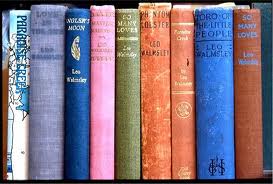Hello Bibliophiles! (Book Lovers for the non-vocabulary blessed)
My apologies for yet another long absence. I have been reading, but I've also been rather sucked into teaching piano lessons, so I've not kept up with my writing. Hopefully I can get back on my horse.
So. Love will Follow.
I picked this book for some rather obvious reasons. The first and foremost is that I married an Indian. Indian marriages are a bit different than western ones, and my hybrid marriage is a beast unto itself. I have always been fascinated by the differences in arranged marriages and love marriage (and every permutation between) and how the outcome of these options is affected by the Indian societal structure.
This book was a fascinating glimpse into Indian marriages. The author's premise was that Indian marriages are burning for a variety of reasons, but mainly that people are both evolving away from traditional mindsets (see non - traditional/non-arranged arranged marriages) and people's tendancy to be more educated and more willing to walk away from situations that were not satisfactory. The story was written from a mainly North Indian point of view, and all of the personal stories were from families in the north of India, which was disappointing for me because there is quite a difference in North Indians and South Indians. For the uninitiated/uninformed, this book makes Indian marriage seem like a dismal institution - which is basically not all that far off from the truth in the fact that not only is India a Patriarchal society with life for all women being very difficult, personal satisfaction/needs are generally placed way lower than those of the group (family or societal), especially for women.
The author gives the impression that divorces are happening on a mass scale. In reality, when the book was written in 2007, only .07% of marriages ended in divorce. Chew on that for a minute. In a nation of how many billion people, .07% still doesn't add up to that many. True, Indian's traditionally did not get divorced, so any increase is noticeable. However, saying that Indian marriages are burning down is a bit alarmist and not all that true.
As the author herself pointed out, societal pressure to stay married is still enormous. While India has been shooting towards modernity, people's mindsets have not changed all that much. A vast majority of people are still extremely old fashioned and conservative at heart.
What I did find interesting (and indeed, extremely depressing) was the author's look at what was making Indian marriages so difficult to maintain. I found the author had many valid points in this regard. However, I feel those factors have always been a part of Indian society and are not to blame for breaking marriages, but more along the lines with weakness in Indian society in general.
As a westerner, I cannot agree that people should not have modern outlooks and personal needs just because divorce may occur. As a matter of fact, I think divorce is a positive step in direction for women in India. Not divorce itself, but the comfort level of a women to go after what she wants and not take/put up with anything and everything someone else wants. Indian life is hard on women, even the economically comfortable/modern ones. Women here never really escape what society and family expects of them. Feeling comfortable enough to know her own mind and make her own decision would be a huge step for a woman here.
Unfortunately, India's problem with women will be ongoing for a long, long time. Mindsets do not change overnight - or over decades for that matter - and India's track record with women is abysmal. Divorce numbers may continue to climb, but it will still not be in a positive fashion. It takes an incredibly strong person to buck tradition and society and hold his or her head high as they walk alone. In India, most of the cases would result in social isolation and an overpowering sense of guilt for most women, which they most likely will not find worth the divorce anyhow.
I wish I would have read this book before I married my husband. I don't regret my marriage one bit, but had I read it before I met him, I may have walked into a difficult situation much more prepared. Love doesn't conquer all, which of course I wouldn't have believed at that age anyhow. When you go into a partnership with a person who's society has a long and complicated history, it's a difficult path to walk. I do hope India can work on it's issues, but I'm positive it won't happen in my generation or even my daughter's.
Verdict: If you are interested in Indian arranged marriage or Indian society's view on marriages and women, this is an eye opener. It's a heavy and at times depressing read, but eye opening. Read it, but keep in mind that .07% doesn't mean marriage is burning completely any time soon.
